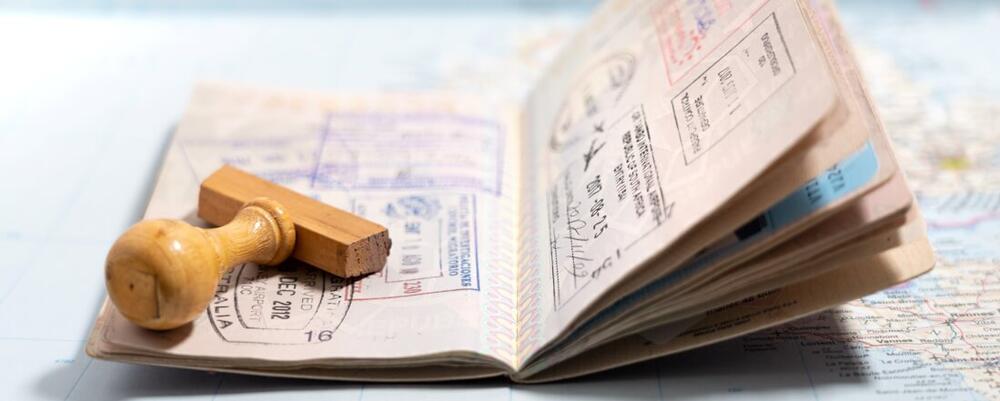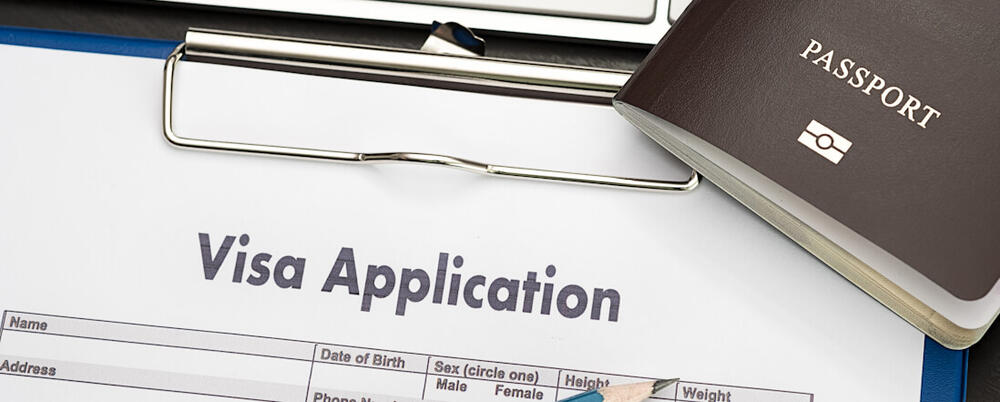- Download our Moving to the UK Guide (PDF)
Whether you plan to travel, take up a short-term job offer, or make a permanent move, deciphering the requirements for visas for the United Kingdom is the necessary first step. Entry protocols depend entirely on nationality: you either need a full visa or an Electronic Travel Authorisation (ETA). As the government frequently tweaks availability and processing rules, verifying exactly which permit suits your situation before booking a flight is the only way to ensure a seamless arrival.
The United Kingdom operates a rigorous points-based immigration system that applies the same standard to EU and non-EU nationals. Irish nationals remain the exception, retaining the right to live, work, and visit freely within the Common Travel Area. EU, EEA, and Swiss citizens can still visit for up to six months, although an ETA has been mandatory for these arrivals since April 2025. For those intending to establish a life in the UK, study, or work, a specific visa application is required.
Always check the official GOV.UK website for the absolute latest on immigration rules. Your local embassy or consulate is also a solid port of call for guidance tailored to your specific nationality.
Electronic Travel Authorisation (ETA)
Most visitors who previously enjoyed visa-free access now require an Electronic Travel Authorisation in the United Kingdom. This digital permission is mandatory for nationals from the USA, Canada, Australia, and Europe, and must be secured before boarding. It replaces the previous visa waiver arrangements for dozens of nationalities.
The ETA facilitates visits of up to six months for tourism, business meetings, short-term study, or medical treatment. An ETA grants permission to travel, not entry; the final decision rests with the Border Force officer upon arrival. The system is designed to speed up border processing without compromising security.
Applications via the UK ETA app or online are generally straightforward, with decisions typically returned within three days. Once approved, the ETA remains valid for two years or until your passport expires, whichever comes sooner. It allows for multiple trips within that window, provided no single stay exceeds six months.
Useful links
Visitor/tourist visas for the United Kingdom

Visitor and tourist visas for the United Kingdom are the standard route for those ineligible for an ETA planning short stays for holidays, business, or private medical treatment. Rules change often; for example, following updates in October 2025, nationals of Botswana and Palestine now require a standard visitor visa. In contrast, requirements have eased for German school groups (aged 19 and under), who may now enter using national ID cards rather than passports or visas. Standard visitor visas are typically valid for six months and allow for multiple entries, although long-term options are available for frequent travellers.
Visa-free entry and Electronic Travel Authorisation
While ‘visa-free’ entry technically still exists, it is now effectively linked to the ETA for most non-visa nationals. Irish citizens are the notable exception, exempt from both requirements.
EU, EEA, and Swiss citizens visiting with an ETA can utilise ePassport gates for a swifter arrival. National ID cards from these regions are no longer accepted at the border, except for those with settled status or specific groups such as the aforementioned German school parties.
Standard visitor visas
If your nationality does not qualify for an ETA, the Standard Visitor Visa is likely the necessary permit. This covers tourism, short courses, business conferences, or medical procedures for up to six months.
To get approved, you must demonstrate a genuine intention to leave the UK at the end of the visit, usually by showing onward travel plans and sufficient funds to cover the stay. The conditions are strict: you cannot undertake paid or unpaid work, access public funds, or marry. Unlike some jurisdictions, switching from a visitor visa to a work or student visa while inside the UK is generally not permitted.
Useful links
Student visas for the United Kingdom
Student visas in the United Kingdom vary based on the duration of the course. Short courses under six months usually fall under the Standard Visitor Visa or ETA rules, while anything longer necessitates the dedicated Student Visa.
Applicants aged 16 or older with a confirmed spot on a course with a licensed sponsor can apply. You must prove financial self-sufficiency and meet English language standards. Strict rules now prevent most international students from bringing family members as dependants, unless they are on a postgraduate research programme or a government-sponsored course.
Degree-level courses generally grant permission to stay for five years, while shorter courses cap at two years. Post-graduation options are also shifting. The Graduate visa currently allows two years (three for PhDs) to work or seek employment after finishing a degree. However, be aware that for Bachelor’s and Master’s graduates, this duration is set to reduce to 18 months starting 1 January 2027.
Recent updates also allow students to switch immediately to the Innovator Founder route upon course completion, which offers a direct path for entrepreneurial graduates.
Useful links
Family visas for the United Kingdom
Family visas for the United Kingdom allow individuals to join relatives – spouses, partners, children, or parents – for stays exceeding six months. The financial threshold for this route has risen sharply, with a significantly higher minimum income requirement for sponsoring a spouse or partner.
For stateless persons, the rules have been streamlined. Dependants (partners and children) can now apply under ‘Appendix Statelessness’ or ‘Appendix FM’ depending on when the family unit was formed, simplifying a previously complex process.
Useful links
Applying for a visa for the United Kingdom

Do not leave applying for a visa for the United Kingdom until the last minute. Processing times can be unpredictable, so submitting an application well ahead of the travel date is advisable.
While the application form is submitted online, most applicants must still visit a visa application centre to provide biometrics (fingerprints and a photo). However, the UK is rapidly moving towards a fully digital border. Physical Biometric Residence Permits (BRPs) have been phased out in favour of eVisas, so successful applicants increasingly receive digital proof of their status rather than a physical card.
Prepare for scrutiny regarding documentation. Depending on nationality and visa type, requirements may include a tuberculosis test certificate or overseas criminal record checks. All supporting documents must be in English or Welsh, or accompanied by a certified translation. Accuracy is vital; a missing page or incorrect format can stall an application for weeks.
Useful links
Permanent residence in the United Kingdom
Securing permanent residence in the United Kingdom usually involves applying for Indefinite Leave to Remain (ILR). Generally, you need five years of continuous residence to qualify, whether you are on a work visa or a family visa. For most work routes, you cannot have spent more than 180 days outside the UK in any rolling 12-month period.
ILR frees you from immigration control, so you can live and work without restriction. It is also the final stepping stone before naturalisation. While you can usually apply for British citizenship 12 months after being granted ILR, those married to British citizens can often apply immediately upon receiving their settled status.
Be aware that you risk losing ILR if you spend long periods away from the UK – typically two continuous years or more (or five years if you have settled status under the EU Settlement Scheme).
EU Settlement Scheme
The deadline for the EU Settlement Scheme (EUSS) has passed for most, but you can still apply if you have reasonable grounds for a delay or are joining a family member who already has status. This scheme protects the residency rights of EU, EEA, and Swiss citizens who were living in the UK before the end of 2020.
Useful links
Visa regulations are subject to change at short notice, and you should contact your local British embassy or consulate for the latest details.
